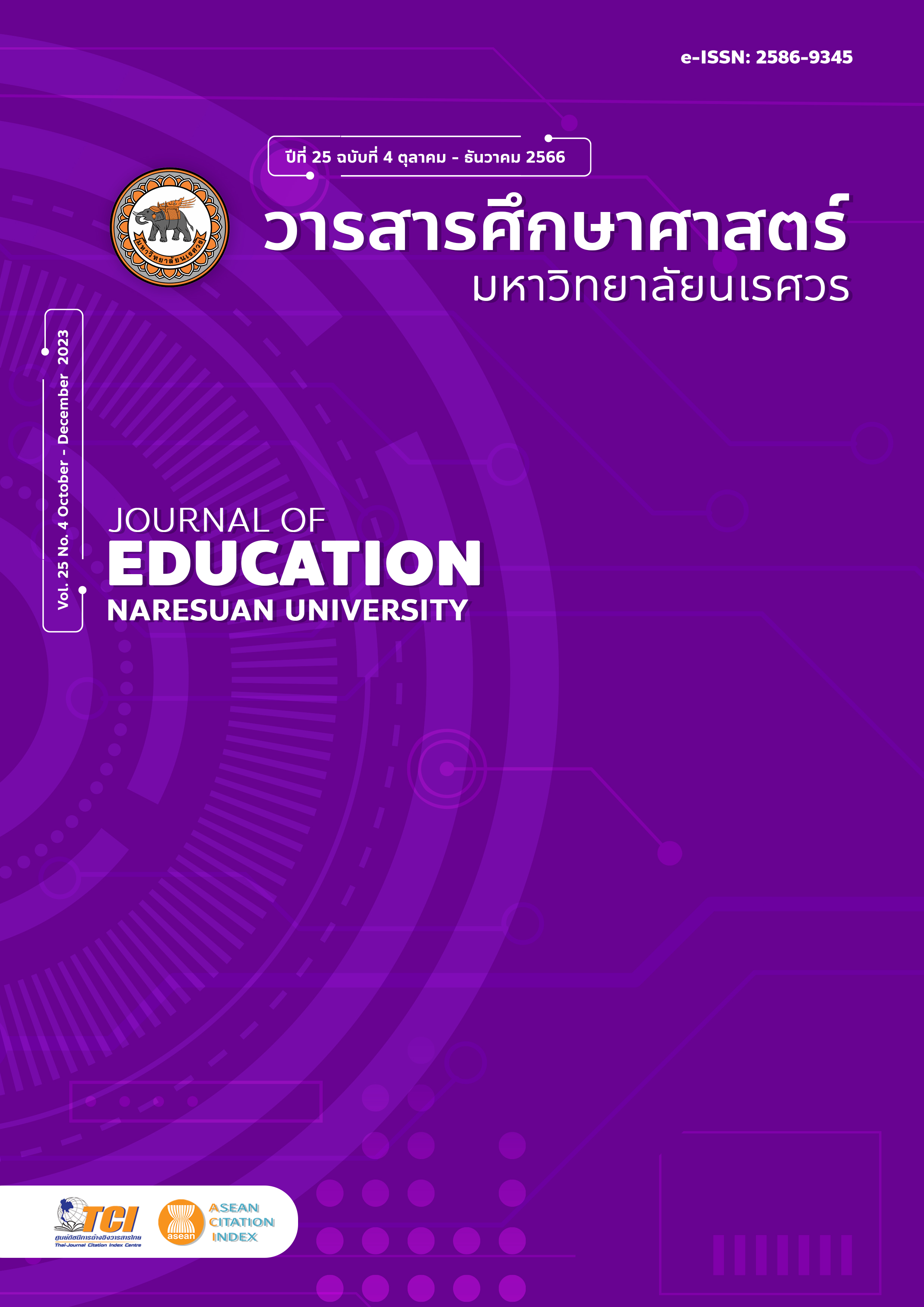EFFECTS OF THE STEM PROJECT APPROACH ON ENGINEERING DESIGN PROCESS AND ATTITUDE TOWARDS STEM EDUCATION OF UNDERGRADUATE IN BIOLOGY EDUCATION PROGRAM
Main Article Content
Abstract
The research aimed to study the development of engineering design process and attitude towards STEM Education of Undergraduate in Biology Education Program. The target group students for the study were seven undergraduates in biology education program of one university in Thailand. The research instruments were STEM Project lesson plan (4 weeks), the engineering design process evaluate form, attitude towards STEM Education scale and semi-structure interview from. The mixed method research was used. The quantitative data was obtained by the engineering design process evaluate form and attitude towards STEM Education scale. The qualitative data was obtained by semi-structure interview. The quantitative data were statistically analyzed by using average, standard deviation, and the Wilcoxon Sign-Rank. The qualitative data was analyzed by using content analysis. The results showed that the STEM Project approach supported the students’ learning in development of engineering design process and was at excellent level for entire students. The attitude towards STEM Education after learning was significantly higher than before learning at .05.
Article Details

This work is licensed under a Creative Commons Attribution-NonCommercial-NoDerivatives 4.0 International License.
The owner of the article does not copy or violate any of its copyright. If any copyright infringement occurs or prosecution, in any case, the Editorial Board is not involved in all the rights to the owner of the article to be performed.
References
Aupapai, N. (2012). Educational psychology (2nd ed.). Bangkok: Chulalongkorn University Printing. [in Thai]
Burnette. (2005). Idesign-seven ways of design thinking: A teaching resource. Retrieved March 10, 2019, from http://www.idesignthinking.com
Intavimolsri, S. (2017). Effects of using STEAM education approach in biology on scientific creativity and learning achievement of tenth grade students (Master thesis). Bangkok: Chulalongkorn University. [in Thai]
Kijkuakul, S. (2014). Learning management directions 21st century teachers. Phetchabun: Chunladit Printing. [in Thai]
Kraiwan, H. (2016). Learning experience provision of the STEAM education on preschool children’s creative problem-solving ability (Master thesis). Bangkok: Kasetsart University. [in Thai]
Ministry of Education. (2017). Indicators and core learning content Science and Technology Learning Subject Group (Revised Edition 2017) According to the core curriculum of basic education in 2008. Bangkok: Agricultural Cooperative Community of Thailand. [in Thai]
National Economic and Social Development Office. (2016). National Economic and Social Development (suppl. 12), 2017-2021. Bangkok: association of teacher. [in Thai]
Panmanee, A. (2014). Trained to think creatively. Bangkok: Chulalongkorn University Printing. [in Thai]
Park, N. (2014). The development of STEAM career education program using virtual reality technology. Life Science Journal, 11(7), 676-679.
Piaget, J. (1983). Piaget’s theory. In P. H. Mussen, & W. Kessen (Eds.), Handbook of Child Psychology: Vol. I History, Theory, and Methods (pp. 41-102). New York: John Wiley.
Pudphong, S. (2010). Enhance creativity through thinking skills. Journal of Education for Teachers and Parents, 7(2), 10-12. [in Thai]
Riley, S. (2014). How to STEAM: The STEAM process. Retrieved April 16, 2019, from http://educationcloset.com/steam/how-to-steam/
Santipaiboon, J. (2018). Learner’s development activities by STEAM and productivity based learning to enhance the process skills and creative abilities in third grade students (Master of Education). Bangkok: Silpakorn University. [in Thai]
Sintapanon, S. (2009). Learning management of modern teachers to develop century learners' skills 21. Bangkok: Chulalongkorn University Printing. [in Thai]
Sinlarat, P., Methakhunnawut, P., & Sriburi, S. (2007). Development research project a model for creating and developing teachers to support the learning process in intellectual development based on Thai concepts. Bangkok: Chulalongkorn University Printing. [in Thai]
The Stanford d. School Bootcamp Bootleg (HPI). (2009). D. school bootcamp bootleg Institute of design at Standford. Retrieved April 18, 2019, from https://dschool.stanford.edu/wp-content/uploads/2009/12/BootcampBootleg20091.pdf
Vygotsky, L. S. (1978). Mind in society: The development of higher psychological process. Cambridge MA: Harvard University Press.
Yang, K., Lin, S., Hong, Z., & Lin, H. (2016). Exploring the assessment of and relationship between elementary students’ scientific creativity and science Inquiry. Creativity Research Journal, 28(1), 16-23.
Yakman, G. (2008). STEAM education: An overview of creating a model of integrative education. Pupils' Attitudes Towards Technology (PATT-19) Conference: Research on Technology, Innovation, Design & Engineering Teaching. Salt Lake City, Utah, USA.


